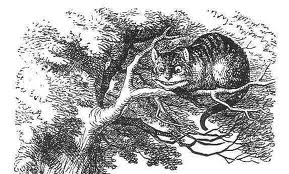Sometimes you read something that is just really cool and you need to share some of the ideas with others who may not have read it yet, that is what I feel like after reading Brené Brown’s Daring Greatly. So I’m taking a little time away from where I was going with the authority questions and I’m going to turn inward a little bit and spend some time here…
If you haven’t encountered Brené Brown before this is one of her TED talks that if you can spare 20 minutes is well worth the time
I love psychology, I love to learn in general and so much of what she says rings true to me. At the core we are all seeking connection with others, we seek it out and yet
“…when asked to tell about their most important relationship and experiences of connection, (participants) kept telling me about heartbreak, betrayal and shame—the fear of not being worthy of real connection. We humans have a tendency to define things by what they are not. This is especially true of our emotional experiences” (Daring Greatly, 7)
Brené Brown comes at this from the perspective of a researcher and social worker, and I come at this from the perspective of a pastor where we come face to face with people who seem to be able to handle anything that comes their way and others who are miserable even in the best of circumstances. I’m going to talk about what she reveals about shame in my next post, but to begin with here are some of her basic statements in my paraphrase:
1. We are all seeking love and acceptance, we all want to be like, valued, cared for-it gives meaning to our lives and its absence leads us to question our worth, value and it leads to a great deal of suffering for us (this may be why rejection hurts so much)
2. If you divide people into groups that feel love and belonging and those who struggle with it the key difference is those who feel loveable, who love and who experience belonging simply believe they are worthy of love and belonging. There lives are not easier that people who struggle with it, they are just able to hold onto the belief that they are worthy of love, belonging and joy.
3. This belief of being worthy of love, belonging and happiness doesn’t just happen, it is cultivated (we can learn how to do this in our own lives)
4. Living in a whole-hearted way (Professor Brown’s way of talking about the people who believe they are worthy) leads to being courageous, compassionate and connected
5. The willingness to be vulnerable is the single value attributed to the people that feel loveable
(This is a paraphrase of Daring Greatly, 10)
I’m going to be working through this material to help myself integrate some of these things, but as a pastor there is so much to what she says that really rings true for me. Who we are as a people are people who are worthy of God’s love, we are enough, we are forgiven, loved, cared for, valued, use whatever word you want there, but at the core of our identity is the reality that before anything else we are valued and enough and from there we can begin to live in a way that is courageous, compassionate and connected. More to come…

